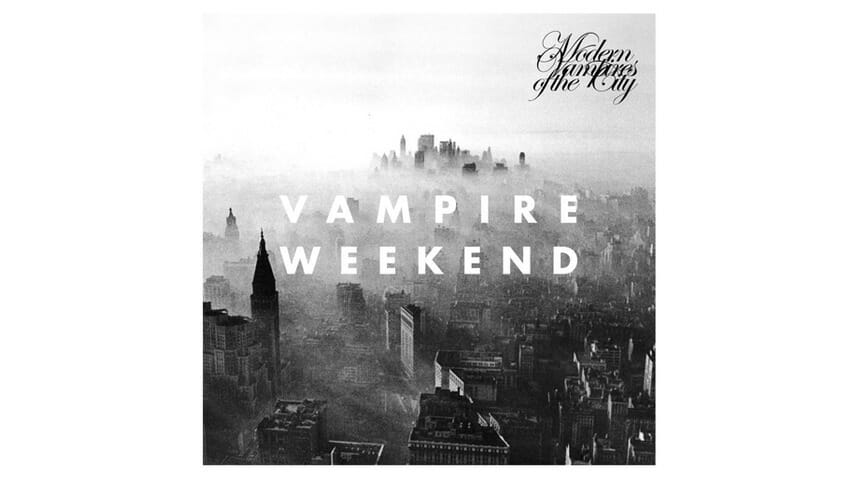Vampire Weekend: Modern Vampires of the City

It’s been five years, three albums, an SNL appearance, countless festival performances and one lawsuit from an unwitting album-cover model since Vampire Weekend dropped its self-titled debut, and still the class thing remains the predominant talking point about the band. Riding hard for the Upper West Side, the group turned its liberal arts degrees into American pop music that appropriated Afropop and songs that sent listeners to look up what the hell a mansard roof or an Oxford comma is. Of course, timing is everything, and if Vampire Weekend’s rise hadn’t coincided with the country’s severe financial faceplant, maybe their boat shoes and Columbia enrollment might not have been so big a deal. But when pensions and retirement plans were disappearing at a tragic rate, these four New Yorkers fronted like the very sons of the upper-class patriarchs who had so recently screwed the country over.
The weird thing: Vampire Weekend was a pretty damn good album, and the band’s understanding of American pop melodies and world music rhythms tethered them to the real world—or at least a world beyond Manhattan—and somehow humanized them. This wasn’t the gauche aspirational/rationalizing of reality TV housewives or Jersey Shore meatheads. Bucking several generations’ worth of received indie-rock wisdom, frontman Ezra Koenig had the temerity to borrow from Paul Simon circa Graceland instead of David Byrne circa Fear of Music, and the band soundtracked his songs with arrangements that were simultaneously inventive and fussy. Instead of grit, Vampire Weekend emphasized opulence, which turned out to be subversive: In a musical realm that equated authenticity with slumming, this quartet stood in direct opposition to all those skuzzy Outer Boroughs acts still nursing the sting of injustice that they would puke in CBGBs’ bathroom. So Vampire Weekend were crucified.